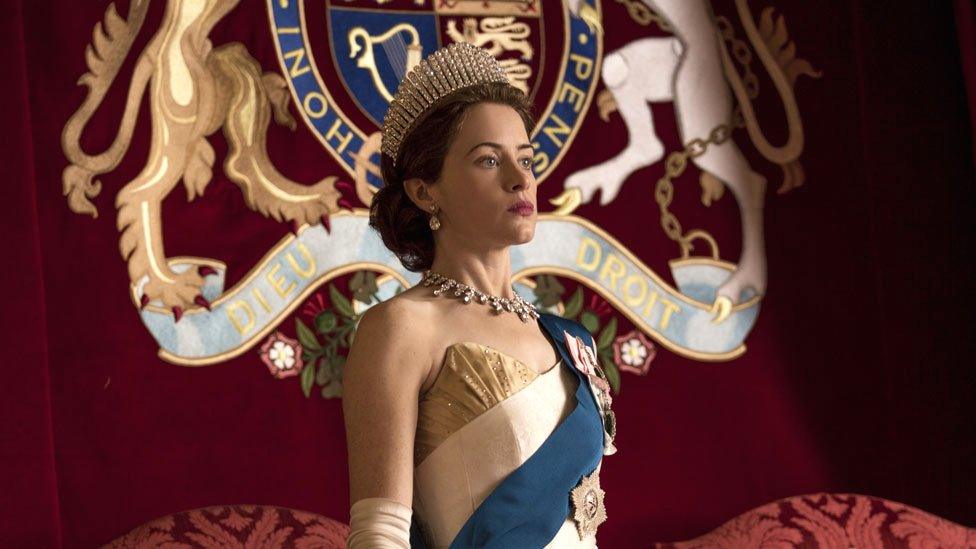The Crown: Will Gompertz reviews season four of the Netflix show ★★★★☆
- Published
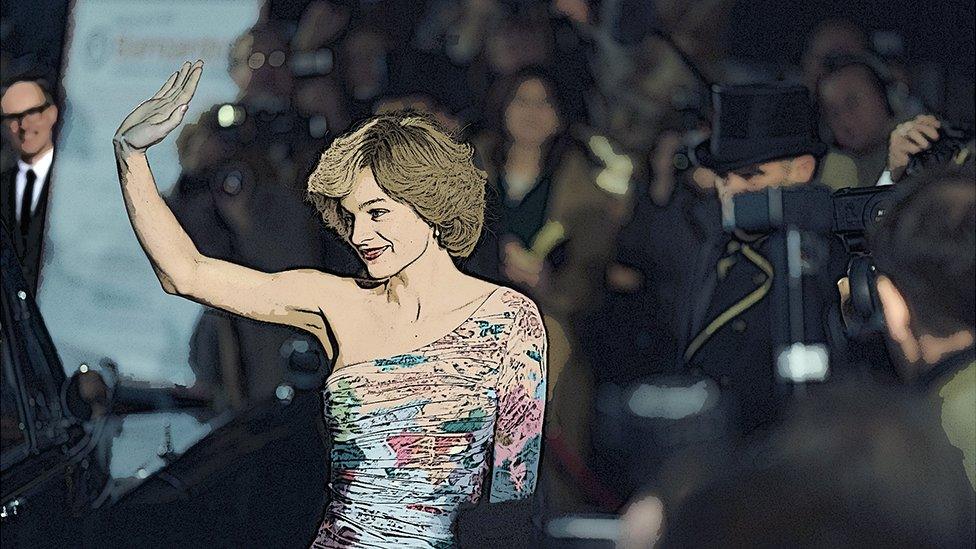
It's the late 1970s. The Queen (Olivia Colman) wants Charles (Josh O'Connor) to find a wife rather than carrying on with someone else's, the IRA wants to intensify its campaign, and the steely new incumbent with the big hair at No 10 Downing Street wants to make Britain great again.
And so begins the latest series of The Crown, Peter Morgan's (Frost/Nixon, The Queen, The Last King of Scotland) dramatized romp through the lives and loves of the House of Windsor over the course of the 20th Century.
The historical focus of the fourth season (as notoriously tricky for a TV show as a pop group's "difficult" second album) is the 1980s, thereby heralding a winning combination of juicy plot lines, marvellously flawed characters and bulging shoulder pads.
As always with The Crown, there's a bit of acclimatisation required before it starts to beguile with the discreet charm of a courtier bringing tea and cake.
I spent the first episode thinking I was watching a very bad remake of Spitting Image, in which the puppets were replaced by gurning actors doing terrible impersonations.
Erin Doherty plays Princess Anne as if a petulant six-year-old with a mouth permanently pursed in pent-up fury.
Colman is excellent until she gives us one of her trademark toothy smiles, at which point her monarchical authority evaporates like a Martini in front of Princess Margaret and we're left with a jolly soul from an Enid Blyton book.
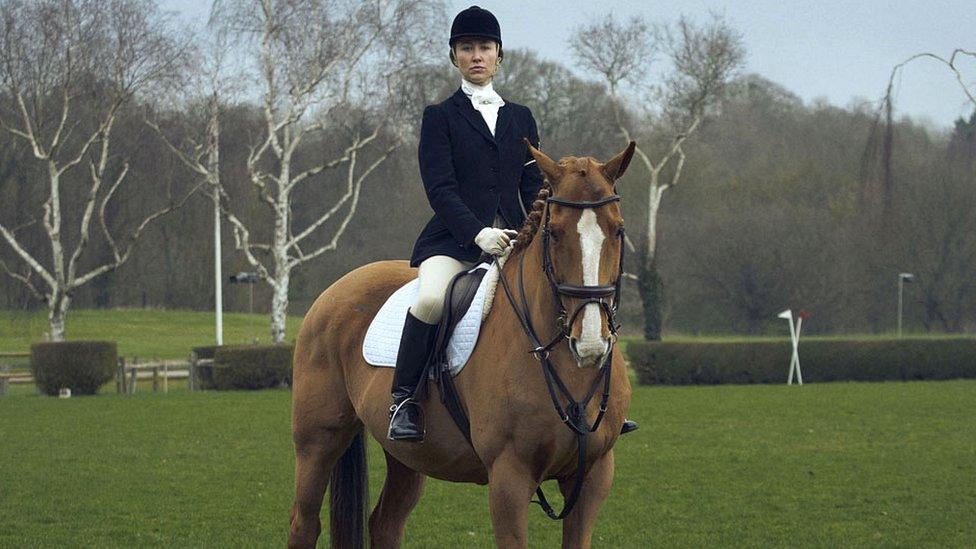
Erin Doherty plays Princess Anne, who is passionate about showjumping but is having problems with her marriage

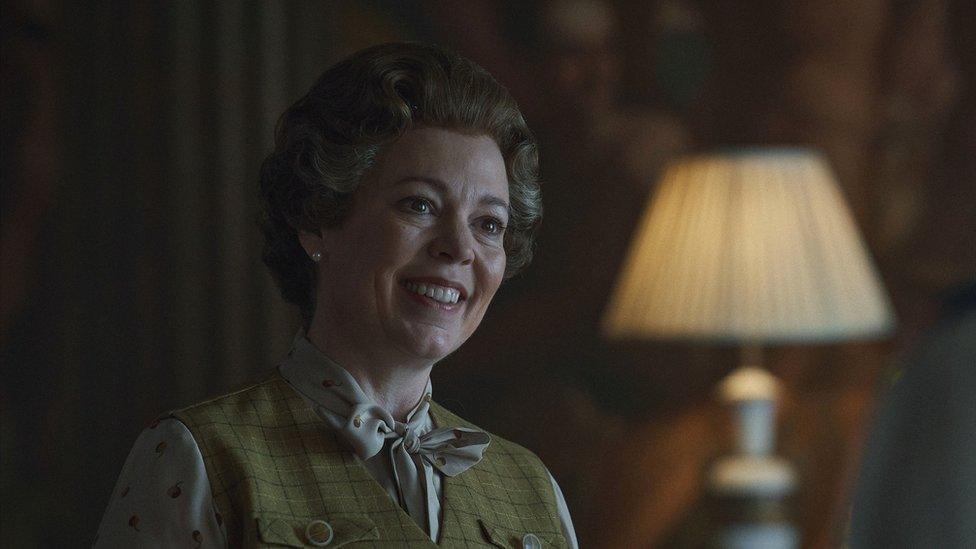
Olivia Colman as Queen Elizabeth II in season four of The Crown
As for Gillian Anderson's Margaret Thatcher, well…
She was terrific in Sex Education and very good in The X-Files.
But she flounders badly as the Iron Lady, a role in which she appears to have been directed to mimic the head movements of a turtle. She's forever craning her neck from side-to-side as if scanning for a tasty lettuce leaf, while over-egging her Thatcher impression to such an extent she is close to unwatchable at times.
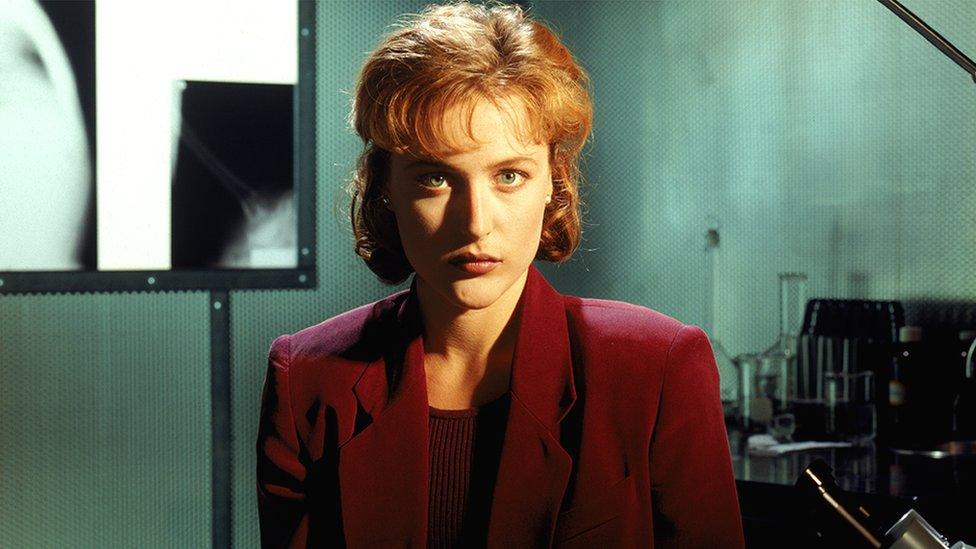
Gillian Anderson was superb as Agent Dana Scully in The X-Files

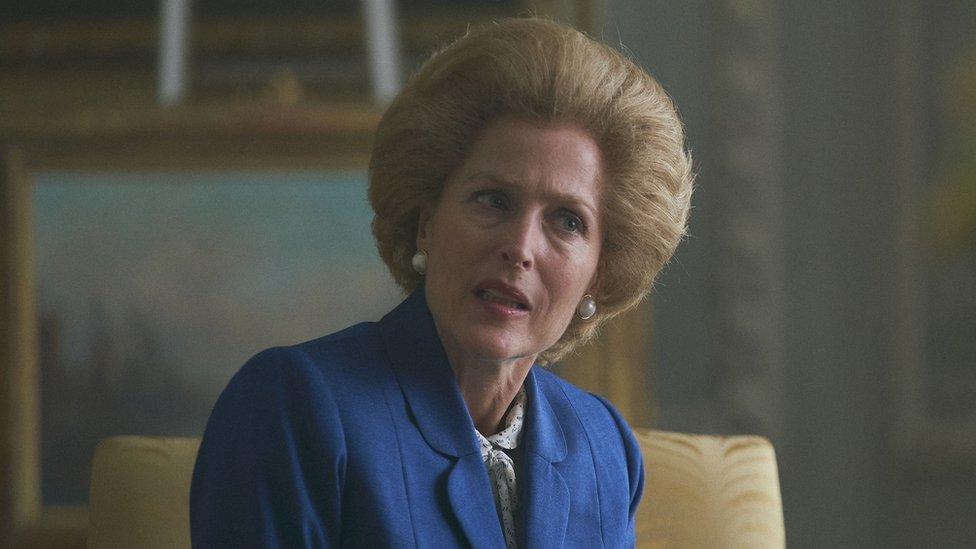
Gillian Anderson seems to be giving an imitation of Margaret Thatcher in The Crown
And then there is Diana.
Lady Diana Spencer lit up the Royal Family when she arrived on the scene in 1980, and she lights up this 10-part series, which, if it were a movie would be called The Crown: Diana's Decade.
Emma Corrin is superb in a part much easier to get wrong than get right. She does the latter, from the first encounter with Prince Charles when a schoolgirl fluttering around her stately home, to the wrung out, strung out, bulimic wife stuck in a loveless marriage a decade later.
It's not simply a matter of producing a serviceable likeness of Diana's mannerisms and voice, which Corrin does, it is a case of creating a three-dimensional character whose personality makes the actions of others credible.
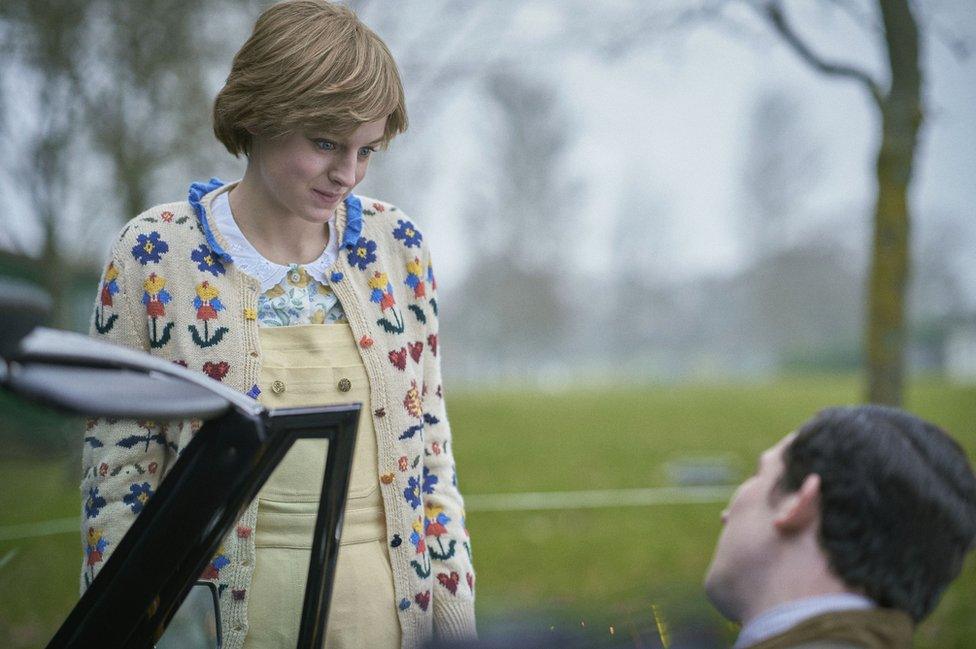
Emma Corrin as shy Lady Di with Josh O'Connor as Prince Charles


Emma Corrin successfully transforms her character into the glamorous Princess Diana overshadowing Prince Charles (Josh O'Connor)
In an ensemble where there is precious little character development, Corrin stands apart by taking Diana from a shy but flirty teenager to a vulnerable international superstar with the backbone to stand-up to the veiled threats of the Duke of Edinburgh (Tobias Menzies).
She should clear a shelf before the awards season kicks off.
Helena Bonham Carter makes a welcome return as Princess Margaret, putting down all around her with merciless wit while pulling hard on a fag jammed into her horn cigarette holder.
The Queen largely escapes her sister's waspishness, and even outflanks her more gregarious sibling by pointing out a man Margaret fancies is "a friend of Dorothy" - an allusion that apparently needs explaining to the party girl.
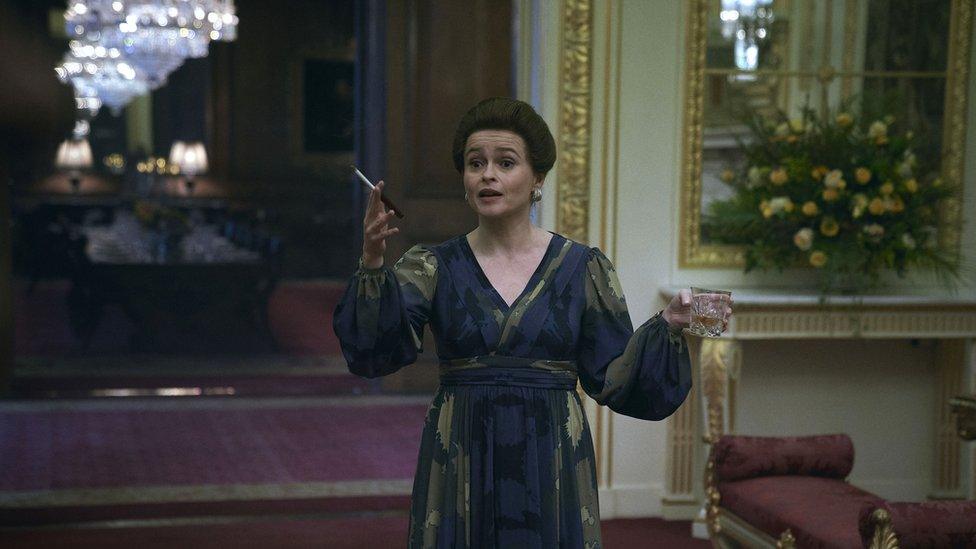
Helena Bonham Carter gives a fine performance as Princess Margaret
The two actresses make for a good double-act, albeit drifting a little close to a French & Saunders spoof on occasion. In one episode there is a flashback to 1947 when the then 21-year-old Princess Elizabeth was in South Africa recording a message to the Commonwealth.
It affords us another look at Claire Foy in the lead role, and a reminder that she gave the character an inscrutability that Olivia Colman cannot match.

Olivia Colman as The Queen in season four


Claire Foy, who was excellent in season two, returns as the young Princess Elizabeth making an address to the Commonwealth
That's fine for large swathes of the show, in which Colman's Queen goes about her daily business of lunching with her mother and sister and giving orders to her private secretary. But in the scenes where she needs to be the ice Queen - an audience with Margaret Thatcher about Britain's attitude to apartheid in South Africa, or coming face-to-face with Michael Fagan who had broken into Buckingham Palace - she is too accommodating and the dramatic tension peters out.
She is at her best when dealing with her errant children. She gives Prince Charles a right royal rollocking for being whiney and entitled, and is suitably repulsed by Prince Andrew when he boasts over lunch about a porn film starring his girlfriend Koo, who plays a teenager sexually abused by older men. It's a reminder that the programmes might be set in the 1980s but they have a contemporary perspective.
That sense of a revisionist history runs through the season, which tackles the Falklands War, Bob Hawke's republican ambitions for Australia, Prince Charles's adoration of Camilla Parker Bowles (Emerald Fennell), Mark Thatcher's (Freddie Fox) hapless navigation on the Dakar rally, Princess Anne's marriage difficulties, Margaret Thatcher's rise and fall, Lord Mountbatten's assassination by the IRA, and the leaking of a political opinion from the Palace.
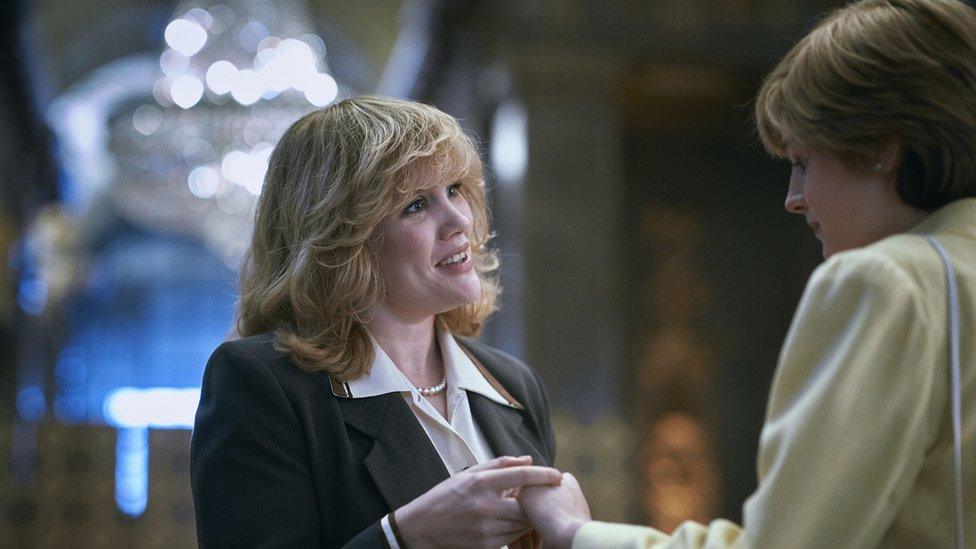
Emerald Fennell plays Camilla Parker Bowles, seemingly supportive of Lady Diana Spencer's marriage to Prince Charles
All of this makes for a vivid backdrop of events that have taken place in living memory, against which the imagined relationships that make this show so compelling are played out.
There is a very good episode centred around the vipers' nest that is the Royal Family at Balmoral, into which both the Thatchers and Diana step with very different outcomes. The residents test and tease their guests, while sniping at one another in an attempt to gain brownie points from Her Majesty.
It's difficult to keep up with which particular stately home the action is taking place in, but the themes are consistent.
Diana loves Charles, Charles loves Camilla, Camilla loves being on the phone and smoking, and the Queen is devoted to her job. As is Margaret Thatcher.
And so, over the course of around nine hours of television, we watch these passions make and nearly break our protagonists as they go about the daily soap opera that is their lives.
It is never gripping but it is always entertaining: a much-needed dollop of well-made, well-written, slowly-paced telly.
Recent reviews by Will Gompertz:
Follow Will Gompertz on Twitter, external
- Published2 December 2017
